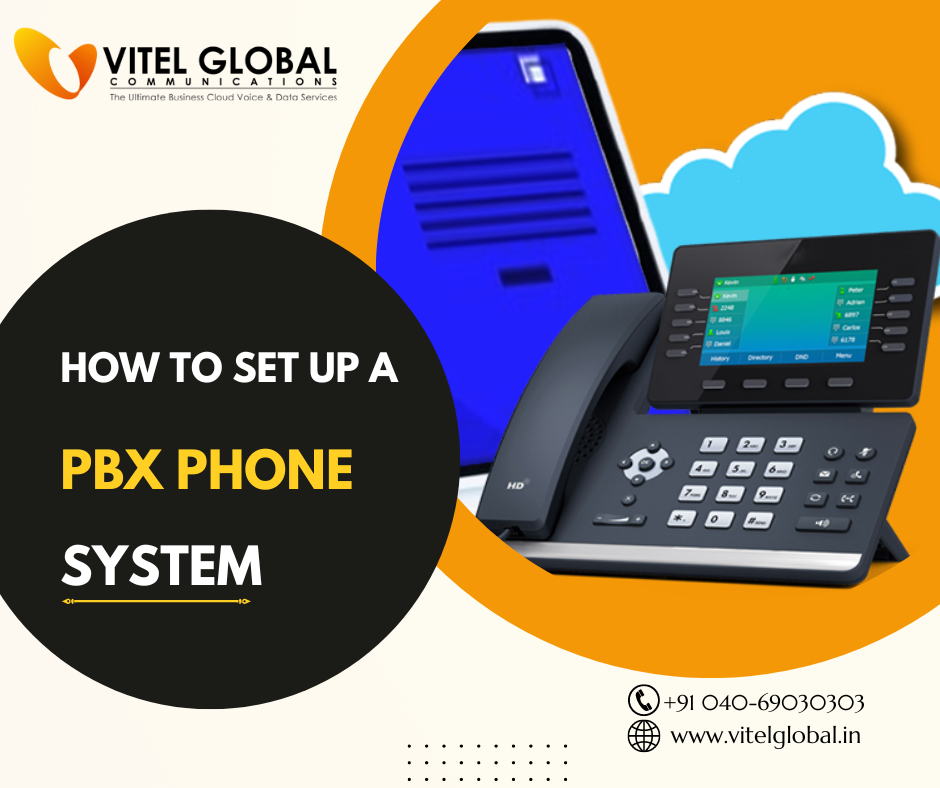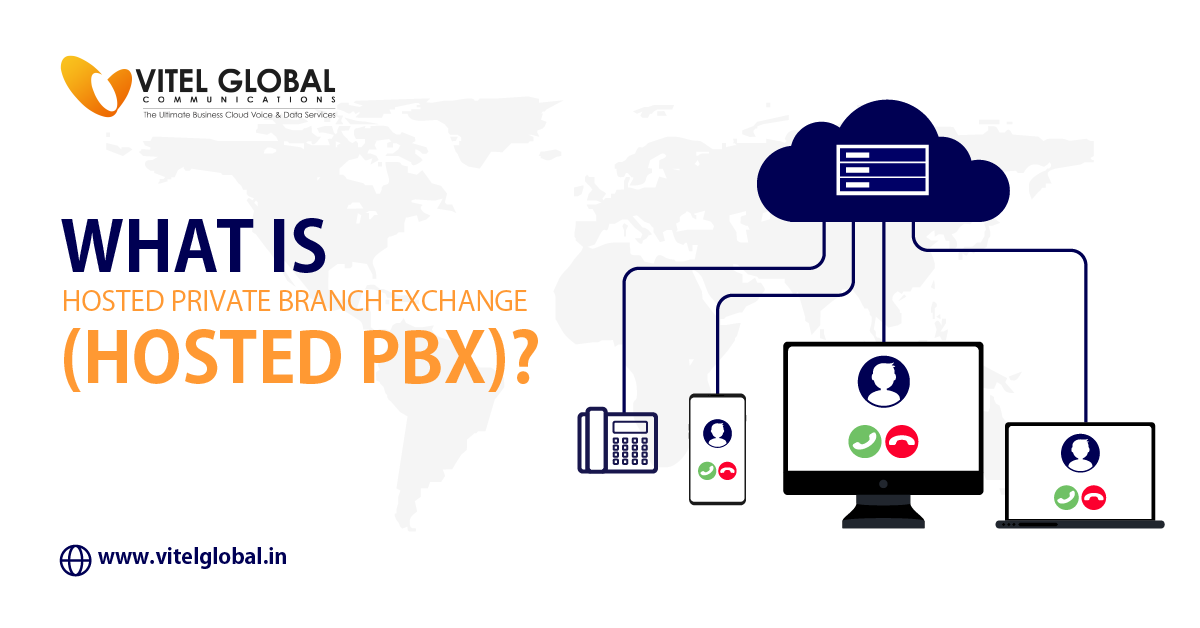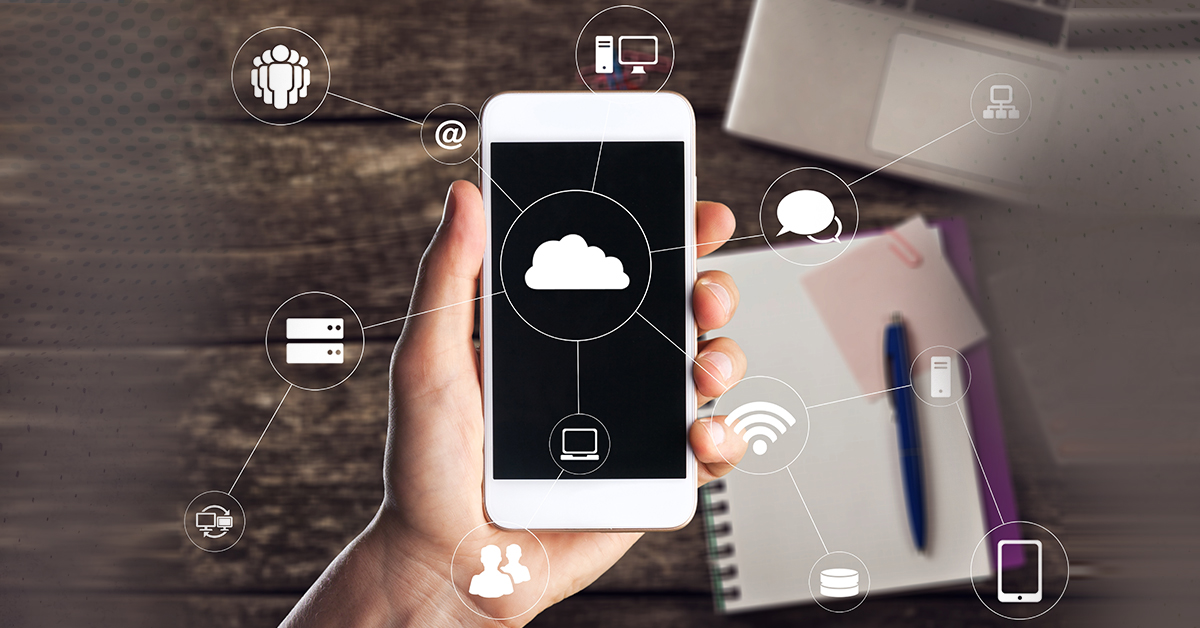Table of Contents
What is the definition of a “cloud PBX System”?
A private branch exchange (PBX) in the cloud is a telephone network designed, hosted, and operated remotely. This service is provided by an outside company that manages it over the internet. It is an IP-based telephony system that hosts any software on a server, but the cloud phone system hosts all software and the entire database in the cloud. In basic terms, it is a virtual phone that delivers a safe and dependable business phone system over the internet by following IP protocols.
There are several kinds of PBX:
Cloud-based and onsite PBX are the two types of PBX systems that are used widely currently.
- A cloud-based PBX is a service offered over the internet and does not necessitate using extra hardware, such as servers, for storage.
- Whereas in the case of traditional phone systems, “onsite” refers to systems run on the company’s servers.
Features of the cloud PBX:
- Call barging
- Routing of calls
- Recording
- Queuing
- Real-time Monitoring
- Voicemail transcription
- Analytics and Reporting
- Virtual Attendant
- Call Groups
- Call Whisper
Data and software are hosted in the cloud rather than on-premises infrastructure like servers with CLOUD PBX, also known as virtual PBX. The pros and cons of using this cloud PBX are laid forth in this post for the benefit of our readers.
First, let’s take a look at the cloud PBX’s qualities or advantages:
Savings in terms of money
Customers save much money using cloud-hosted PBX systems since they only pay for their services.
Time-savings
Installing, evaluating, and provisioning this phone system takes a fraction of the time it would with a standard one and it may streamline server maintenance and software upgrades in the future.
Cutting-edge technology:
Replacing the traditional phones with new IP phones is suggestible since there is a possibility for an option to integrate them across multiple platforms with existing infrastructure or technology.
Versatility.
People may connect from anywhere in the world using their mobile phones, desktop computers, or laptops, making it possible for them to work from home.
Options for personalization
Outstanding features like accessing the menus for voice, call recordings and other options can be activated freely without any effort.
Superiority
It is possible to have crystal-clear Internet phone conversations using a cloud-hosted PBX, providing improved compressed-streaming rates and increased internet speeds.
The ability to grow
Scalability is provided because it is easy to scale to meet high consumption capacity based on the user’s resource needs.
Resilience and redundancy in the event of a disaster:
Leading PBX providers have a better option in terms of dependability levels due to the usage of highly dedicated resources and servers at their end.
If there is any issue like a natural calamity, the worry about data loss will not be there, because the PBX providers are confident about the lost data recovery which is a secondary process, the main focus will be on securing the data.
Real-time monitoring
There will be no space for any errors because of continuous monitoring and other data processing.
Security is a top priority.
Because of this, cloud-based phone systems are more secure than in-house systems. Top PBX providers are in charge of all software upgrades and firewall maintenance.
Cloud PBX systems have both pros and cons. As we have discussed the pros, let us learn about the cons, which are outlined below:
It constantly depends on an internet connection since it will not work without an internet connection. Reducing the call quality is seen because of the dropping down in the signal strength and other technical issues will also have a similar impact.
The current state of cloud PBX industry research:
Cloud PBX is seeing the next level of growth in industries due to the ongoing demand. In the coming days, this is going to meet perfection because of its extensive features and affordability.
Various research materials and analyses show that PBX is going to have a huge impact on the industry soon and provide huge competition to the latest communication technologies available out there.
Customers’ negotiating power, suppliers’ bargaining power, new entrants and alternatives, and the degree of competition. System integrators, partners, and end users all profit from cloud PBX systems. Providing cloud PBX solutions is becoming an essential and leading role for essential businesses.
Setting Up Cloud PBX Desk Phones
You’ll need to take specific actions based on the model purchased and the network configuration. The setup process is straightforward if the business has a conventional network switch. Power over Ethernet (PoE) eliminates the requirement for an AC converter by transmitting the electrical signal over a single line.
- Connecting the phone and handset to the AC adaptor and the outlet provided
- Use various cables to establish the connection
- Enabling dial tone for initialization process recognition
- Router for connectivity
Ethernet cables should connect the phones to the PoE switch or router. Keep the twisted pair wires within the 328-foot limit.
Once activated, it takes less than 24 hours to get up and running with a cloud PBX service. Activating the account is hassle-free as there is only a need to provide an email ID and username. Internet connections should be steady, with a maximum speed of 150kbps and supported operating systems.
Conclusion:
PBX systems in the cloud are becoming increasingly popular in businesses as they provide several advantages over traditional systems, and Vitel Global communications are the best-known cloud PBX provider in the industry.
Grow your business and maximize productivity with the industry’s best business communication service.
Get high-quality services from the top cloud PBX providers today.
For More Info or Book Your Free Demo Today click here





